How do I stop birds eating grass seed and wrecking my new lawn? Experts solve the dilemma
There are a few simple solutions that can stop them

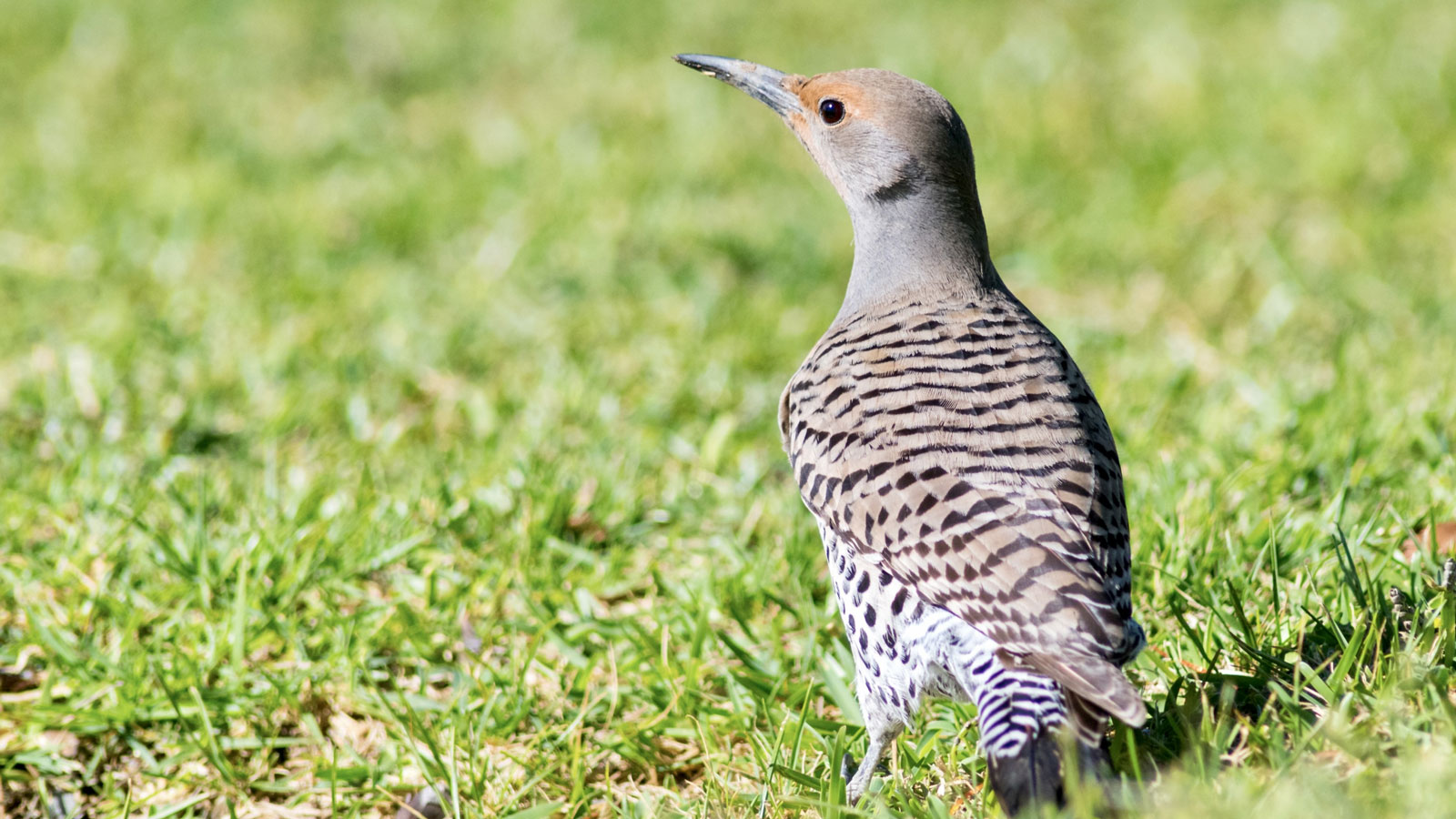
Design expertise in your inbox – from inspiring decorating ideas and beautiful celebrity homes to practical gardening advice and shopping round-ups.
You are now subscribed
Your newsletter sign-up was successful
Want to add more newsletters?

Twice a week
Homes&Gardens
The ultimate interior design resource from the world's leading experts - discover inspiring decorating ideas, color scheming know-how, garden inspiration and shopping expertise.

Once a week
In The Loop from Next In Design
Members of the Next in Design Circle will receive In the Loop, our weekly email filled with trade news, names to know and spotlight moments. Together we’re building a brighter design future.

Twice a week
Cucina
Whether you’re passionate about hosting exquisite dinners, experimenting with culinary trends, or perfecting your kitchen's design with timeless elegance and innovative functionality, this newsletter is here to inspire
Q: I've recently seeded my lawn but I've noticed that birds are eating all of the grass seed I've sown. Are there any simple ways to deter them that won't harm any birds, but will protect my new lawn?
A: If birds are taking a real interest in your new lawn, it's worth taking a few steps to stop them eating the grass seed as otherwise all your careful planting could be wrecked.
Grass seed sewing is a simple task but carelessness afterwards can quickly undo your hard work. Keep an eye on it by following the right lawn care and make sure there aren't any regular visitors taking advantage of a free feed. It's important to protect the sown seed and reduce the risk of birds using the seed as a source of food. The good news is there are lots of expert tips you can follow to take care of your newly seeded lawn.
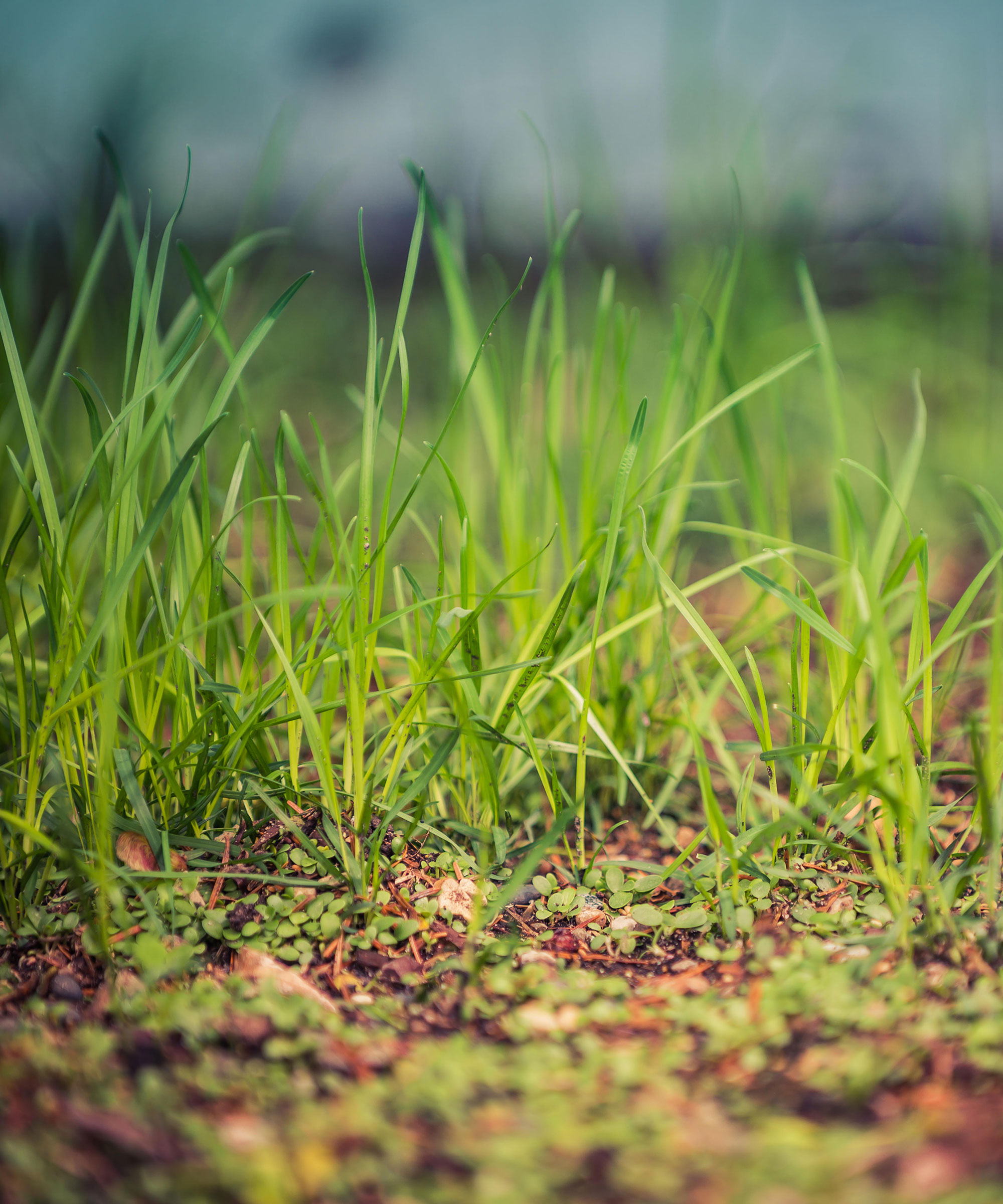
Grass seed can be a tasty treat for our feathered friends

Sarah Wilson has been writing about gardens since 2015, covering everything from garden design to houseplant care. She has studied introductory garden and landscape design as well as floristry. She loves birds visiting her garden and is happy to have them hanging out on bird feeders and not destroying the lawn.
6 ways to stop birds eating grass seed
You've looked into the science and found out exactly how to plant grass seed for flawless results. Then after all your hard work your lawn gets dive-bombed by every bird in the neighborhood looking for a free feast on your lovingly laid grass seed.
'There is no grass seed that birds won't eat,' says Reese L Robbins, founder of Just Pure Gardening. 'Birds have a natural instinct to forage for seeds. Even if you choose a seed blend that is less appealing to them, they may still peck at it.'
The good news is there are ways to deter birds from eating your grass seed.
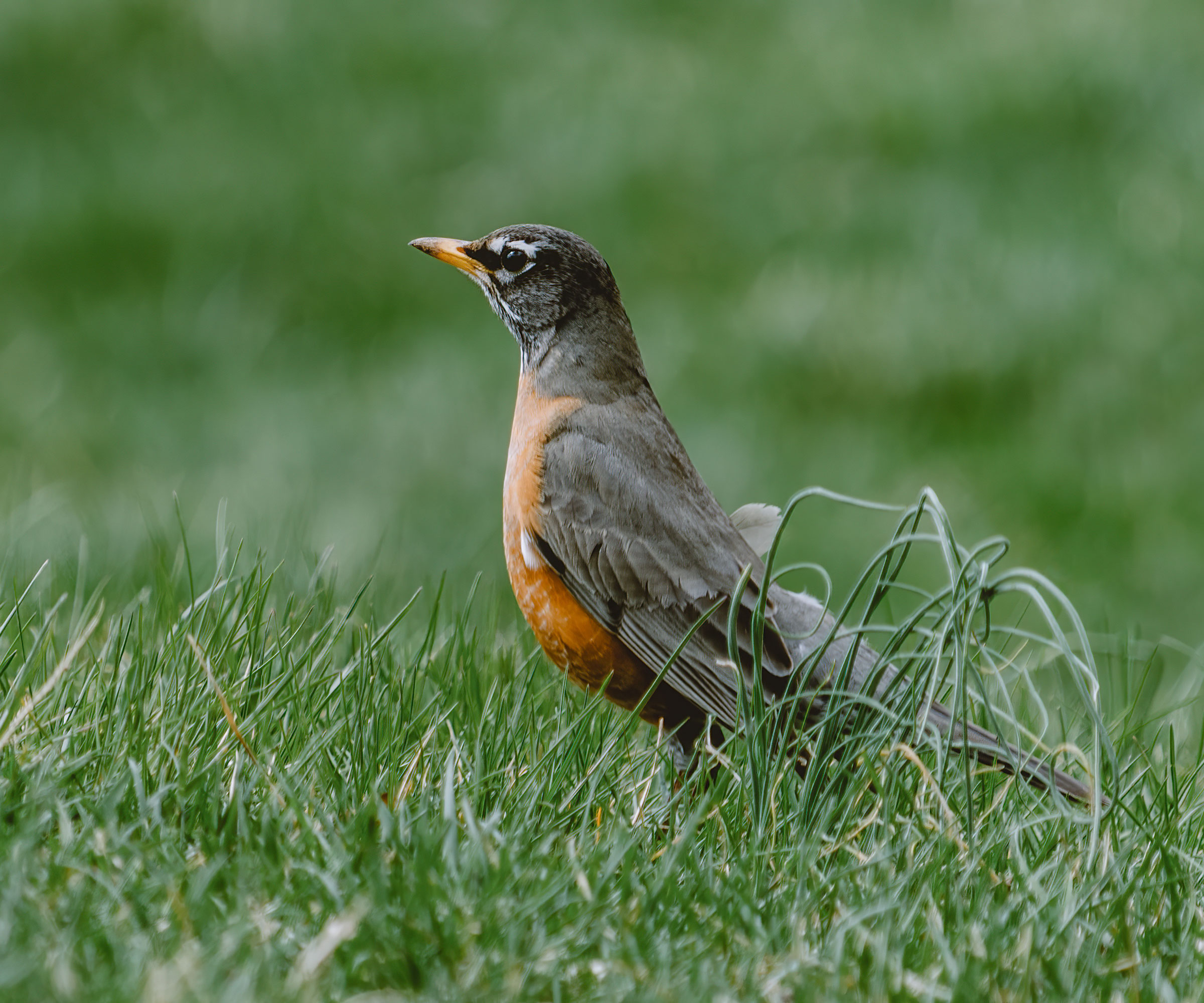
An American Robin eyeing up a feed
1. Cover the seeded area
'One effective method is to cover the seeded area with a lightweight, breathable fabric or bird netting,' says Reese. 'This will create a physical barrier between the birds and the seed, making it more difficult for them to access. Be sure to firmly secure the fabric's edges to the ground to prevent birds from getting underneath it.'
Design expertise in your inbox – from inspiring decorating ideas and beautiful celebrity homes to practical gardening advice and shopping round-ups.
If you have been repairing patches in grass and have a slightly smaller area of grass seed, covering it with horticultural fleece is a great option. 'Unroll large sheets and stake them into the ground with pegs,' says Ben Hilton, owner of The Yard and Garden. 'The fleece allows water to penetrate it, helps lock in moisture, and also protects the area from cold winds or late frosts.'
Once the grass seeds set root you can roll it back up and reuse it for other jobs around the garden.
Horticultural fleece or frost protection fabric is readily available at Amazon.
2. Set up a deterrent
There are also a variety of techniques you can use to physically deter birds, such as noisemakers and bird scare avatars.
'Hang reflective objects like aluminum pie plates or mylar tape around the garden area, which the light will reflect off and frighten the birds away,' suggests expert landscaper Noah James of Liberty Lawn Maintenance.
Meanwhile Olivia Kepner, founder of Cool Wood Wildlife Park, suggests placing bird deterrents such as fake owls or rubber snakes near the seed.
3. Install motion-activated sprinklers
There are other ways of giving the birds a scare too. 'Purchase a few motion-activated sprinklers and position them around the lawn,' says Ben Hilton. 'It's a win-win. The bird gets a fright and the lawn gets watered.
You can also try setting an oscillating sprinkler on a timer. This gives the lawn a more controlled method of irrigation and covers a much larger spray path.
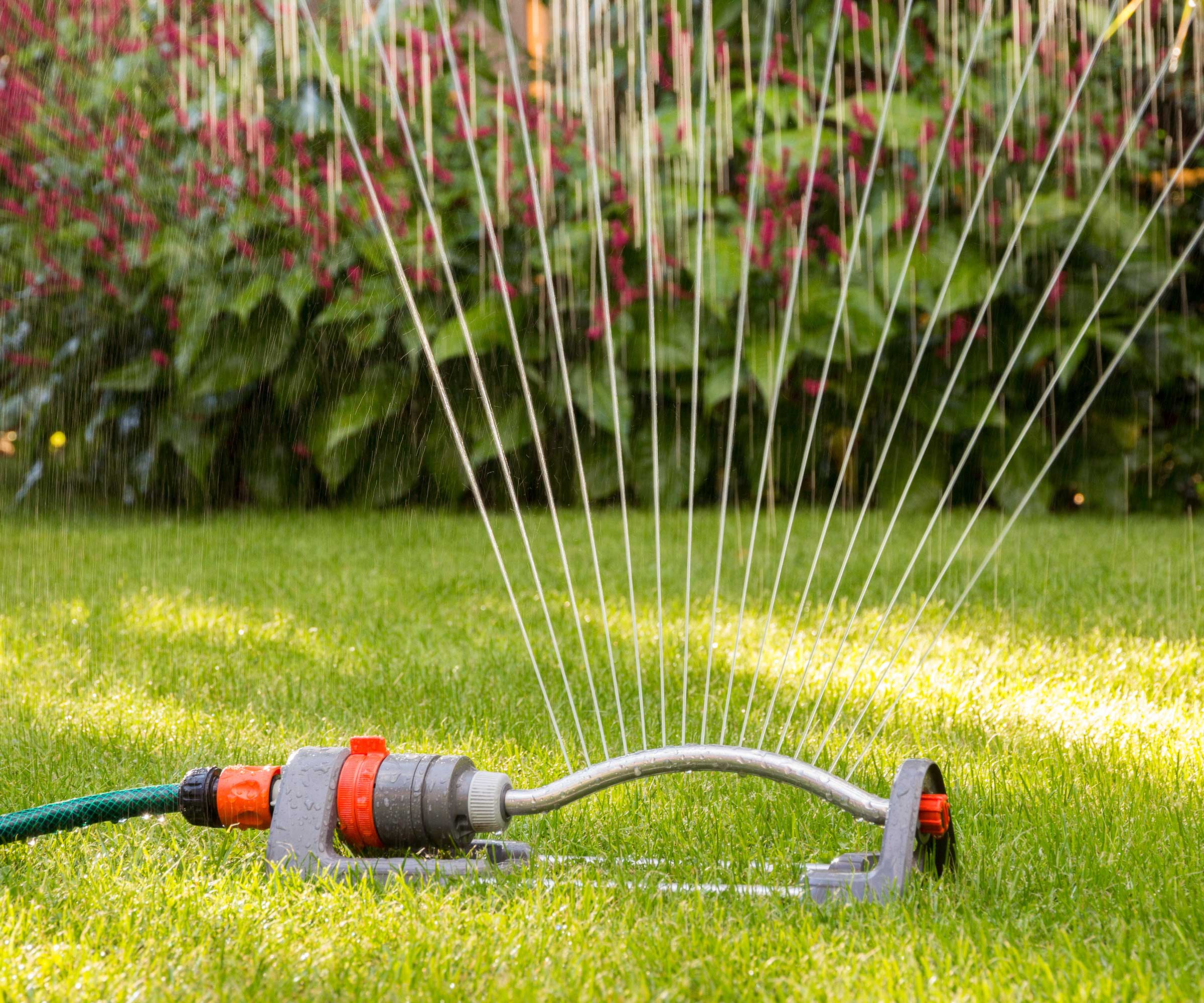
Sprinklers can deter birds from an area of your lawn
4. Hang up lots of bird feeders
If you have bird feeders, make sure they are topped up with plenty of food that’s more interesting to the birds than the grass seed. Find out how to make fat balls for birds and the grass seed will suddenly seem less interesting
'A few days before you sow the grass seeds, cast some sunflower hearts [available from Amazon] on a different part of the garden daily, as this will help to distract the birds away from the newly sown area,' says Dick Woods, founder of Finches Friend Nature.
'While you’re at it, place bird feeders as far away from the seeded area of grass as possible,' adds Dick. 'Although this will potentially attract more birds into the garden, it will draw them to the feeder and not to the ground.'
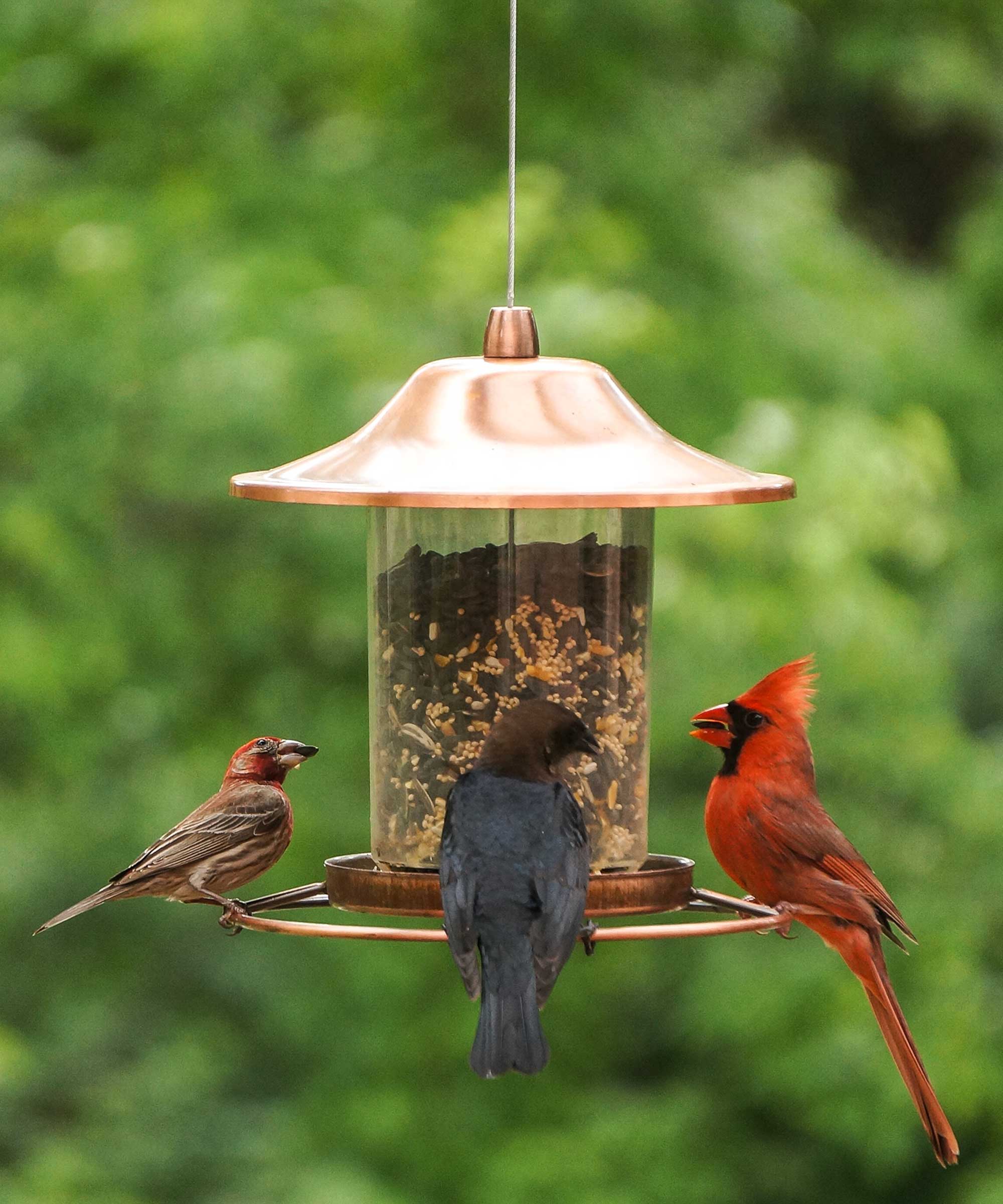
Move bird feeders away from the grass seed area
5. Get rid of lawn bugs birds love to eat
Insects are a common food source for birds, and lawns are a great hunting ground for them. By reducing the amount of insects in your lawn can will also help cut down on the chances of birds eating your grass seed. Get rid of lawn grubs such as the leatherjackets and chafer grubs that birds love to go after.
6. Add a layer of mulch
If you know your lawn is in poor condition, this could be the ideal time to give it a boost with a layer of topsoil or alternatively try mulching the surface. It's also a good idea to find out when to plant grass seed in your area as these jobs go hand in hand.
'When you have laid your grass seed down cover it with a layer of fine mulch,' says Ben Hilton. 'This will create a physical and visual barrier from the prying birds. But it will also condition your lawn and help retain moisture while your grass seed puts down its roots.'
It's a good idea to try to hide the grass seed as much as possible. Rake the seed in well so that it's not as visible to birds. Then when your grass seed starts to grow you can finally breath a sigh of relief!
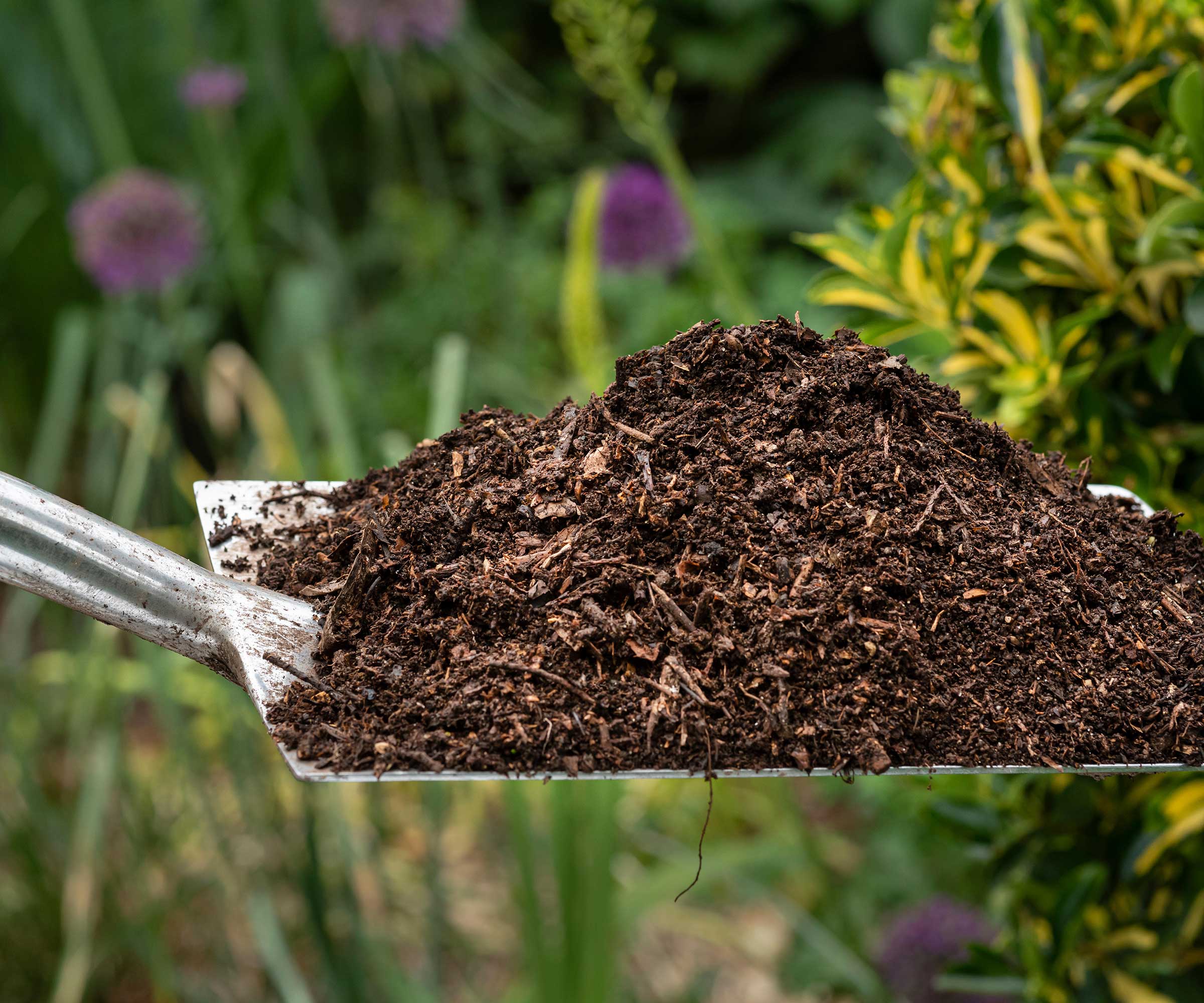
Mulching can prevent birds from reaching the grass seed
FAQs
Can you buy grass seed that birds won't eat?
If you want to buy grass seed that birds won't eat, there are a few different options available. Some species of birds prefer certain types of seeds. By planting grass seed that is less attractive to birds you may be able to discourage them from eating it. But there has been mixed success with this and while it may well deter some birds, others will not be put off in the slightest.
'Not all grass types are created equal when it comes to bird resistance,' says gardening expert Henna Bell from Gardening Hood. 'Some grass varieties are more likely than others to attract birds, so it’s important to choose a bird-resistant grass variety when planting your lawn.'
Some of the most bird-resistant grass varieties include fescues, bluegrasses, and rye grasses. Using taller grass varieties can also be an effective deterrent.
Look at the best fast growing grass seeds too as you want your regenerated lawn to spring up quickly and keep those birds at bay.
While birds are a valuable asset to any backyard, and especially for a wildlife garden, there are times when our feathered friends eat things we'd rather they wouldn't! Giving one of these methods a go is an easy way to make sure all your hard work sowing new grass doesn't go to waste. And once that lawn is green and thick, you'll be glad you went to the extra effort.

Lifestyle journalist Sarah Wilson writes about garden design and landscaping trends for Homes & Gardens. She has studied introductory garden and landscape design, and also has an RHS Level 2 qualification in the Principles of Plant Growth and Development. She is a regular contributor to Homes & Gardens and Livingetc. She has also written for Country Living, Country Homes & Interiors, and Modern Gardens magazines